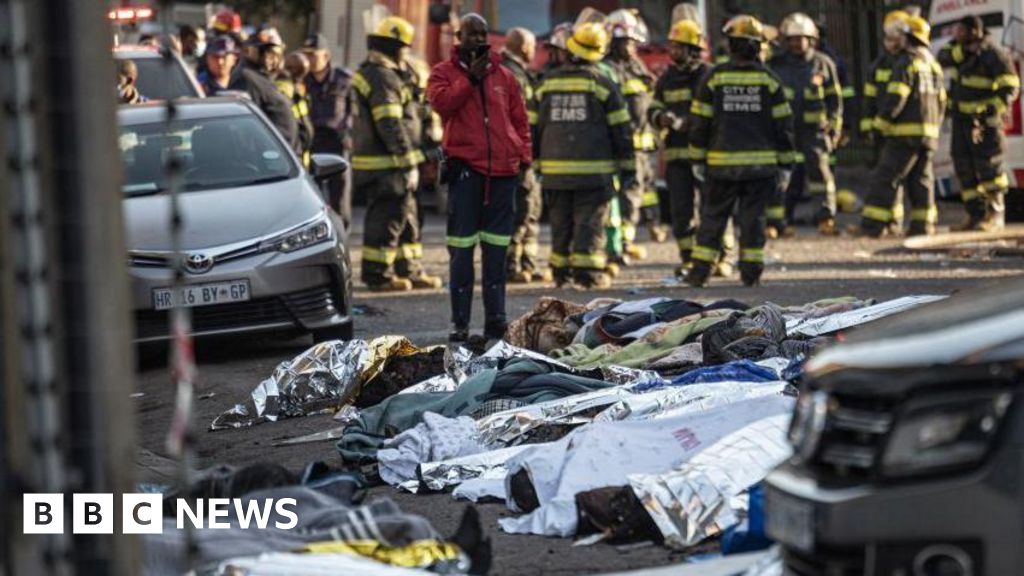South African authorities say “extreme poverty and a severe lack of affordable housing” were major factors in a deadly Johannesburg building fire two years ago.
In August 2023, 77 people died and many more were injured after a fire gutted the Usindiso building in Marshalltown, where many poor people were living.
The tragedy shocked the nation and highlighted the deep housing inequalities in Africa’s wealthiest city – inequalities the authorities promised to address.
The report, the final one to be released, has not been made public but the Gauteng provincial government, which commissioned it, shared some key findings.
One person is currently on trial over the deadly blaze. Sthembiso Mdlalose initially confessed to starting the fire but recanted his statement when the trial got underway.
He has since pleaded not guilty to 76 counts of murder among other charges.
Among the findings shared was that “hijacked buildings” – properties overtaken by criminals who charge others rent – are not the primary problem plaguing downtown Johannesburg’s abandoned buildings.
Instead, the report found that only 5% of the city’s buildings “had allegations of rent collection by non-owners”.
These buildings are often overcrowded and dangerous, with flimsy partitions made of combustible materials like plywood and fabric, to separate large spaces into smaller rooms, and blocked fire exits.
Following the fire, a commission of inquiry was set up with a two-fold mission: firstly to investigate the causes of the fire, and secondly to identify the underlying reasons behind the spread of hijacked buildings.
As part of its investigation, the commission reportedly inspected around 110 properties, and “uncovered crucial insights that challenge common assumptions”.
Almost 80% of the properties surveyed had fire-safety concerns, and 71% lacked any fire-safety equipment.
The commission also blamed the absence of basic services, including running water and waste removal for the spread of fires in inner-city buildings. Some 77% of the properties they looked into didn’t have water, sanitation, refuse removal, and electricity.
Johannesburg officials have also been accused of failing to allocate enough funds for housing.
The commission recommended creating a plan to address the social housing problems in Johannesburg, installing provide basic services including electricity and water regular waste removal in these buildings.
It also recommended finding creative ways to reduce red tape for developers and around the relocation of tenants.
Whilst reporting on the second anniversary of the Usindiso building fire, the BBC spoke to survivors who still hadn’t been relocated to permanent housing.
In response to the findings, Nomzamo Zondo, the executive director of the Socio-Economic Rights Institute (SERI) told the BBC that “the commission’s recommendations give urgent direction on how to tackle a long-standing housing crisis”.
She added that she hoped “the commission’s myth-busting about the problems of unlawful occupation will change the approach of city [of Johannesburg] politicians and officials.
“Ultimately political will, planning and the resourcing of the [city of Johannesburg] and its housing department is the only way to placing the inner-city poor in dignified living conditions.”
Additional reporting by Khanyisile Ngcobo

